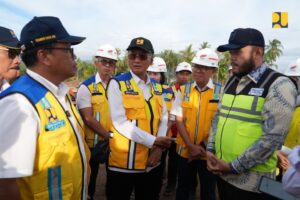Media and Information Literacy: A Crucial Defense Against Disinformation
Media and Information Literacy (MIL) encompasses more than just the passive consumption of media. It embodies a proactive engagement with information. It calls for a critical evaluation of the content presented. So, it allows people to question of the underlying motives of media companies in general. Furthermore, it provides a purview of the potential impact in the real world in case people are fed with misinformation.
MIL promotes the following ability to discern credible sources from unreliable ones, to recognize bias and manipulative tactics, and to reject harmful narratives. These are necessary skills in an era where false information can spread like wildfire.
The Harmful Impact of Disinformation and Hate Speech on Human Rights
Disinformation and hate speech are far more than mere nuisances. They pose a direct and grave threat to human rights. Disinformation is the deliberate dissemination of false information with the intent to deceive. It also aims to sow discord, fuel conflict, and undermine democratic processes.
On the other hand, hate speech encompasses any communication that incites discrimination, hostility, or violence against individuals or groups based on their identity. It erodes the foundations of equality and dignity. These insidious forces disproportionately impact marginalized communities. If unaccounted, it could perpetuatesystemic inequalities and a creation of an environment where prejudice and violence can flourish.
MIL: A Shield for Protecting Human Rights
Media and Information Literacy serves as a potent antidote to the toxins of disinformation and hate speech. Through the promotion of MIL within communities and educational institutions, people empower others to become discerning consumers of information. It can help them recognize and reject harmful narratives.
If MIL is so powerful to cure such destruction, how can people exploit it? Understand that strategies for promoting MIL are multifaceted. They include incorporating this subject into school curricula, organizing MIL community workshops, and leveraging social media platforms for awareness campaigns.
The effectiveness of MIL in combating disinformation has been demonstrated in numerous case studies. Educational initiatives that teach students to critically evaluate media content have proven to be instrumental in reducing the spread of false information.
Educational Institutions and Organizations: Pillars of MIL Promotion
Educational institutions and organizations play a pivotal role in fostering MIL. By providing comprehensive training in media literacy, they equip individuals with the critical thinking skills necessary to navigate the digital landscape responsibly. Through workshops, seminars, and online resources, these institutions can empower individuals to become active participants in the fight against disinformation and hate speech.
Conclusion
In conclusion, MIL stands as a bulwark against the corrosive forces of disinformation and hate speech. By empowering individuals with the ability to critically engage with media, MIL safeguards human rights and fosters a more informed and equitable society. It is a premordial duty upon us all to prioritize and promote MIL, not just as a defensive measure, but as a proactive approach to upholding the values of truth, equality, and dignity in the digital age.
As we navigate the complexities of the information landscape, the cultivation of MIL represents a beacon of hope, illuminating the path towards a more informed, just, and compassionate world.







